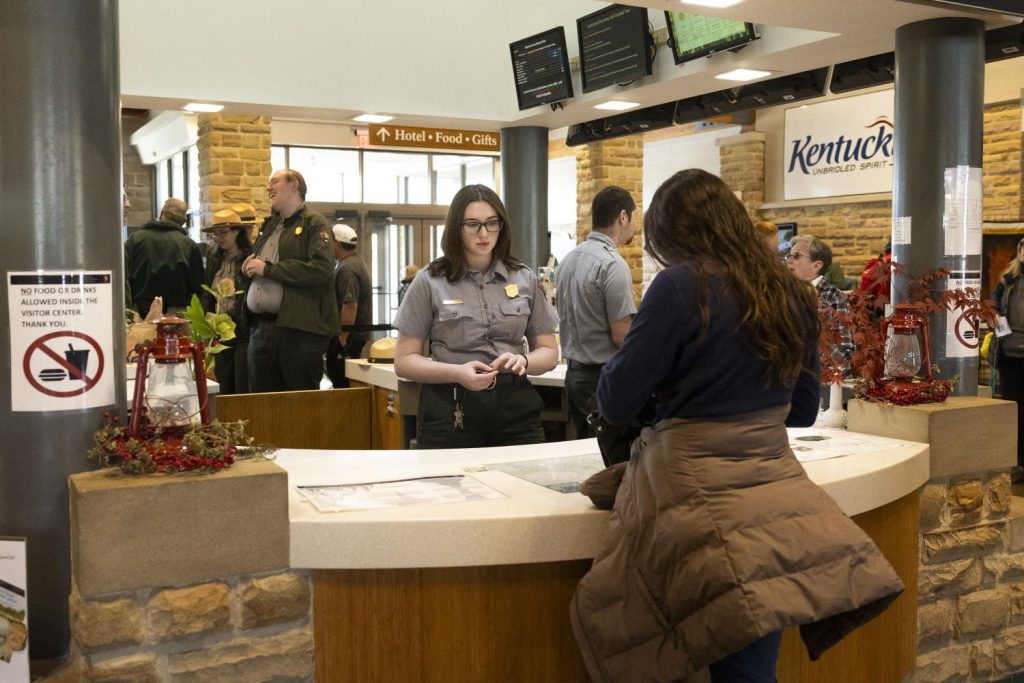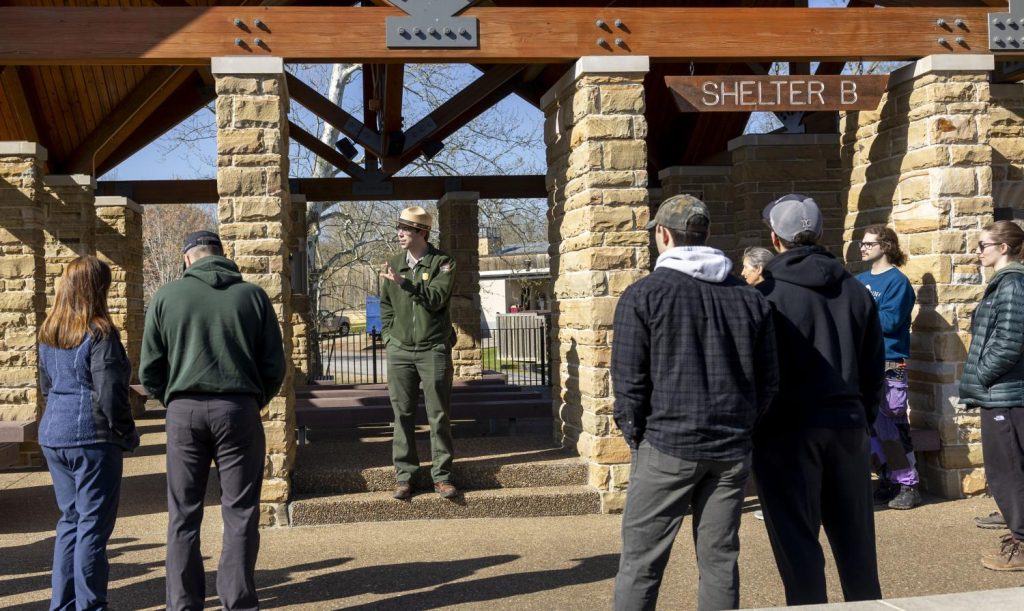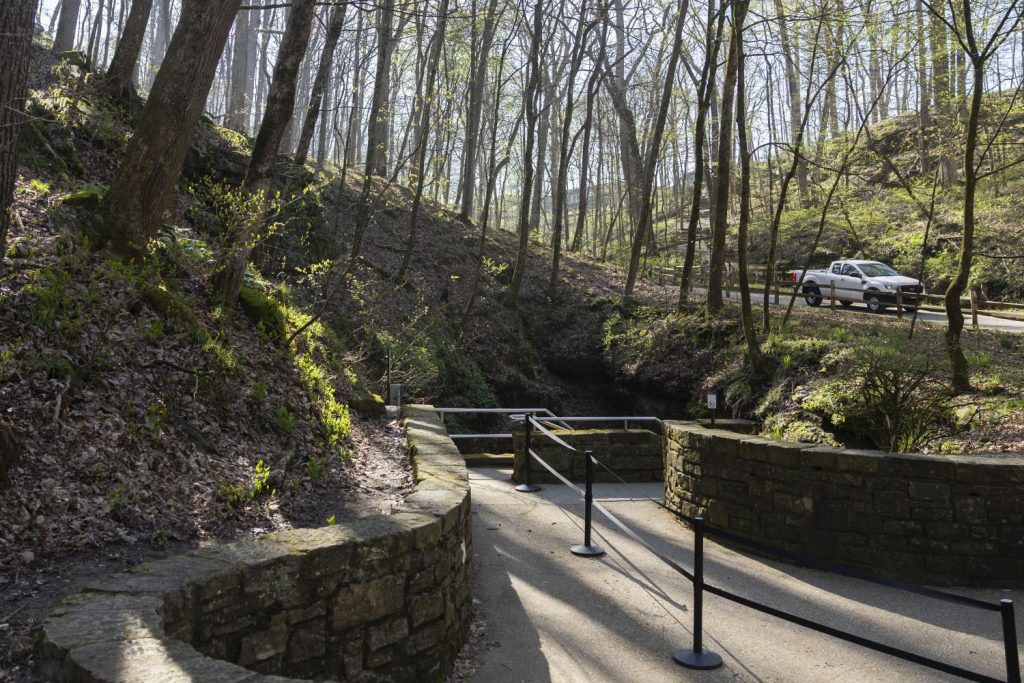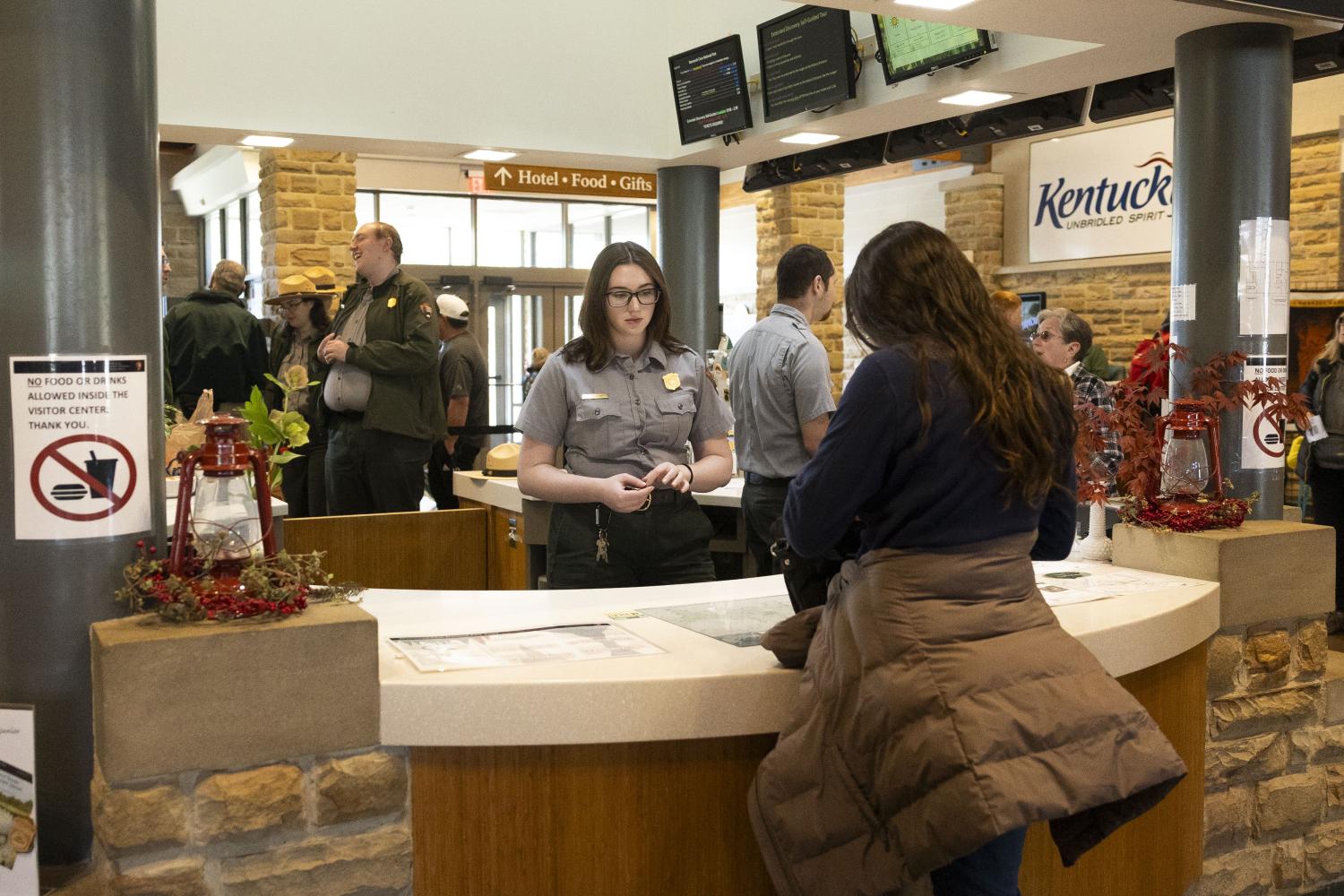President Donald Trump’s administration rescinded 2,000 seasonal and permanent National Park Service job offers during the federal hiring freeze in January and February, according to the National Parks Conservation Association.
A park ranger at Mammoth Cave, who spoke on the condition of anonymity, said they were one of the 2,000 individuals who had a job offer rescinded. They were hired to work at Mammoth Cave National Park, but said they had the offer withdrawn before they could start.
“This is my lifelong dream,” the park ranger said. “This is going to be my first time wearing the green-grey [uniform colors], doing interpretation.”
The park ranger said they were rescinded on Jan. 23 through an email from the National Park Service. The park ranger said their supervisor was unaware of the termination until the day the park ranger received their email.
“Please be advised that the National Park Service is unable to fill the park guide position at Mammoth Cave, Kentucky at this time,” the termination email stated. “As such, your job offer has been rescinded at management’s request. Should the bureau be able to fill the position again, another announcement will be posted in due course.”

Almost a month later, on Feb. 20, the administration restored jobs for 1,000 National Park Service employees who were deemed essential through the same order that was used to terminate them, according to AP News. The park ranger said they went back to work on March 23.
A park ranger is an interpretive guide at Mammoth Cave. According to the National Park Service, a Mammoth Cave interpretive guide includes working in the visitor center, collecting fees, and providing cave tours, talks, walks, hikes and campfire programs.
The park ranger said they volunteered with Science and Research Management at Mammoth Cave before obtaining their job. This research enables scientists to conduct studies in the park, such as bat and bird surveys, cave mapping and more. A research permit must be obtained from the park to conduct research.
The park ranger said they competed with 5,000 applicants for the job, and the termination was done at a national level and not a local level.
“That was the worst day of my life,” the park ranger said. “I wish it had been directly from my supervisor, who knows which jobs are duplicates and are nonessential.”
Molly Schroer, the Mammoth Cave’s Public Information Officer, said she could not comment on the staff changes because she needs permission to talk to the media from her supervisors.
Additionally, organizations such as a WKU research project lost funding due to the federal funding freeze order at the start of President Donald Trump’s term on January 27.
WKU geological sciences professor Chris Groves is the director of the Crawford Hydrology Lab. He said the lab was set to work on a research project on how groundwater affects an endangered shrimp species at Mammoth Cave, but was halted due to the federal funding freeze.
Groves said the project had been awarded funding through the Department of the Interior, which houses the National Park Service, for the transportation and chemical analyses needed to find and study specific species of shrimp.
The Crawford Hydrology Lab researches the groundwater of karst landscapes and its effects on humans and endangered species, Groves said. The lab is partially funded through the university’s Applied Research and Technology Program. However, Groves said the majority of funding for the lab comes through research grants from state and federal agencies.
Groves said the freeze had temporarily left him and the students uncertain about when they would start on their project.
“It had been approved, and the budget was ready to start, but we could not start on it because of the delay of the budget from the administration,” Groves said.


Groves said they have now received the funds to start the project, following the restoration of park rangers’ jobs on Feb. 20. However, Groves said he is not sure when they will start going into the field yet.
Graduate student Ljubomir Risteski from Columbus, Ohio, said he worked at Mammoth Cave before as an interpretative guide and was an intern in Science and Resources Management. Ristesk said he is currently employed at Crawford Laboratory with Groves and is set to work on the endangered species project. Crawford Laboratory funds his master’s studies. Risteski said he wants to work for the park service again after he graduates in May of 2026.
“Over the decades, interest in environmental studies has increased because there was a time when there was no Environmental Protection Agency,” Groves said. “So, the fact that the agencies are there now leads me to think generally that sort of interest is increasing and more threats to resources arise.”
The WKU 2024 fact book stated that there has been a 12.6% increase in enrollment for Earth, Environmental, and Atmospheric Sciences majors over the past five years in 2024, despite an 8% decrease in Ogden College of Science and Engineering enrollment overall.
WKU geological sciences professor Amy Nemon teaches classes on national parks and has not seen a change in interest in the programs.
“This [federal funding and hiring freeze] may actually boost numbers within our department because of the desire to be able to give back and to do something within those particular areas,” Nemon said.
Despite the restoration of many National Park jobs, issues remain. According to the Los Angeles Times, more than 700 National Park Service employees accepted buyouts, believing they would not be rehired.


